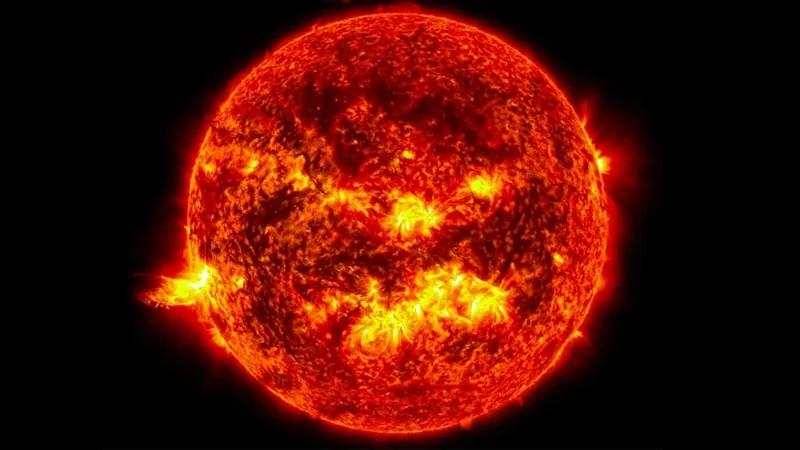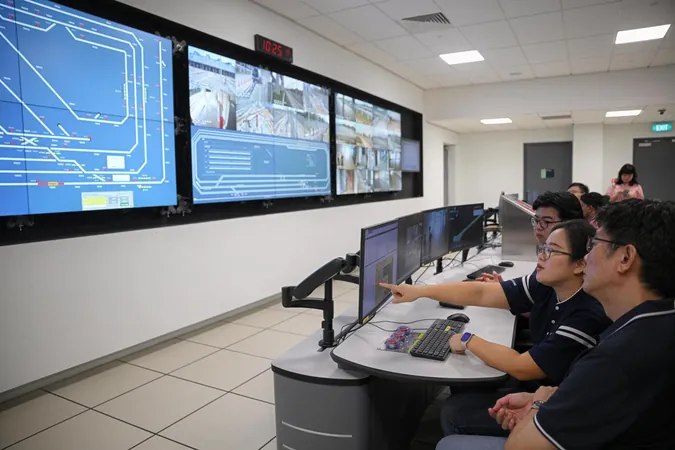
Shocking Study Reveals Connection Between Solar Heat and Earthquake Activity!
2025-03-10
Author: Ming
A groundbreaking study conducted by Matheus Henrique Junqueira Saldanha, a Ph.D. candidate at the University of Tsukuba, alongside fellow researchers, uncovers compelling evidence about how solar heat influences seismic activity on our planet. This research builds upon a pivotal 2022 study by Saldanha and colleague Yoshiro Hirata, which established a direct link between solar activity and earthquakes.
Utilizing innovative methods, Saldanha explained that one of their primary techniques involves "edit distances," enabling researchers to analyze patterns of earthquake occurrences across different geographical regions. Additionally, they applied radial basis functions to these distances to predict next-day maximum earthquake magnitudes more accurately.
The comprehensive analysis covered a vast dataset of global earthquakes from January 1, 2000, to August 31, 2021, incorporating various earthquake catalogs and solar data, including sunspot numbers and atmospheric temperatures. Astonishingly, the research identified seasonal fluctuations in seismic activity that correlate with changes in solar irradiation, showcasing a profound influence of solar dynamics on earthquake occurrences.
The study discusses various mechanisms through which solar activity could affect seismic behavior. One significant factor is the thermal stress induced by solar heat impacting the Earth’s crust, as well as indirect influences stemming from alterations in atmospheric and oceanic conditions.
An intriguing revelation from the research is a delayed cause-and-effect relationship between solar activities and earthquakes. Solar heat doesn’t affect the crust instantaneously; it requires time to penetrate deeper layers, which subsequently influences seismic events. This delay varies geographically, depending on geological features and the thermal characteristics of the materials in those regions.
For instance, the research found that Japan experiences an optimal forecasting accuracy with a delay of approximately 30 days. Conversely, areas like the Balkans exhibit longer delays, ranging from 180 days to even a year for the most accurate earthquake predictions.
"Our findings provide compelling new evidence that solar activity and atmospheric heat are crucial influences on seismic events," stated Saldanha. "This adds a significant piece to the complex puzzle of earthquake forecasting, indicating that climate-related factors might play a much more substantial role than previously understood."
Understanding these vital connections could be revolutionary in refining earthquake prediction models, ultimately enhancing our ability to foresee and respond to seismic disasters. As scientists continue to unravel these intricate interrelations, we may be on the brink of significant advancements in earthquake preparedness and safety!
Don't miss out on future updates—stay informed as we explore the latest in seismic research and its implications for our planet!


 Brasil (PT)
Brasil (PT)
 Canada (EN)
Canada (EN)
 Chile (ES)
Chile (ES)
 Česko (CS)
Česko (CS)
 대한민국 (KO)
대한민국 (KO)
 España (ES)
España (ES)
 France (FR)
France (FR)
 Hong Kong (EN)
Hong Kong (EN)
 Italia (IT)
Italia (IT)
 日本 (JA)
日本 (JA)
 Magyarország (HU)
Magyarország (HU)
 Norge (NO)
Norge (NO)
 Polska (PL)
Polska (PL)
 Schweiz (DE)
Schweiz (DE)
 Singapore (EN)
Singapore (EN)
 Sverige (SV)
Sverige (SV)
 Suomi (FI)
Suomi (FI)
 Türkiye (TR)
Türkiye (TR)
 الإمارات العربية المتحدة (AR)
الإمارات العربية المتحدة (AR)